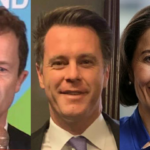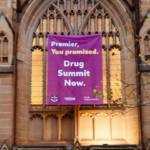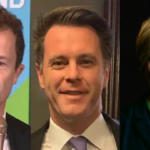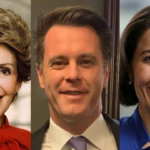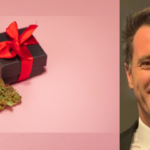NSW Government Knows We Need Evidence-Based Drug Law Reform. So, Why Block It?
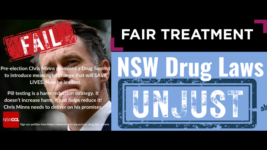
The NSW Council for Civil Liberties posted an image last week of the premier with the word “Failed” stamped boldly across his forehead, with the reason being that Chris Minns had “promised a drug summit” preelection “to introduce meaningful change” that would save lives, yet “now he is silent”.
Prior to the last election, as leader of NSW Labor, Minns talked up prioritising drug reform and had been advancing this since 2019. Yet, post-election he’s taken on the stance of several Liberal premiers before him, which is to recoil when drugs are mentioned and “play dumb” in responding.
Minns promised a NSW Drug Summit on election, and the sizable part of the constituency that prioritises drug law reform, and understands the reasons why drug laws are not only unjust but also compound drug harms and deaths, is outraged by his backflip on the health issue.
Indeed, in promising a summit, Minns triggered memories of the 1999 NSW Drug Summit, when then strong Labor premier Bob Carr, tackled an issue that most major party politicians cower from, by holding the event, listening to the evidence of experts and in seeing reason, actioning them.
So, in invoking the reputation of the late 90s summit, as well as the bold leadership that advanced it, Minns had presented himself as such a politician.
Yet, within weeks of taking office, he pulled out the Reaganite “just say no” to drugs approach and employed vague nonsensical responses to the press.
And these straight-out refusals to drug law reform that he started spouting were earlier advanced by NSW Liberal premiers Gladys Berejiklian and Dominic Perrottet, but at least then, they appeared to be due to their honest opinions and dearth of understanding.
However, when it comes to the new guy, he wants us to believe he’s as naïve as them, even though the truth is out there.
Their own fault for taking them
For the past century of prohibition, and increasingly so since Nixon launched the war on drugs in 1971, the public has been indoctrinated with myths and fears about the psychoactive substances that were outlawed after being available to humans for millennia.
But with the onset of the mid-1980s HIV crisis, drug harm reduction rose as a major issue, as the virus, then a death sentence, could be passed on by certain drug use practices, and Dr Alex Wodak, the man who changed Carr’s opinion, ensured needle and syringe exchanges were rolled out.
While the 1999 NSW Drug Summit led to the Uniting Medically Supervised Injecting Centre Kings Cross being established, which has saved over 11,000 lives by reversing overdoses. And the turn of the century overdose crisis and the issue of street drug use in the Cross then faded into the past.
Other harm reduction interventions and drug law reforms occurred from the 80s onwards. Peer organisations were formed and raised the rights of people who use drugs. And Australia became a leader in drug harm reduction, while community attitudes began to change, just like Carr’s.
But that reputation faded, and by 2015, when the current NSW drug law reform campaign came into play, with concerted calls being issued for pill testing due to a spate of festival deaths, then premier Mike Baird and police minister Troy Grant set the tone of the political position Minns now takes.
The premier knows the truth
The reason why Minns’ new line on drug law reform, which is he doesn’t have a “mandate” to legalise cannabis or establish drug decriminalisation or roll out pill testing, all key issues on the agenda, is that he already talked the talk and showed he absolutely understands what it’s all about.
During a 2019 gathering of Labor members in favour of drug law reform, and there are quite a few of them, Minns gave a speech about legalising cannabis, and he insisted that simply decriminalising wasn’t good enough, and he outlined how drug prohibition does in fact increase associated harms.
So, just-say-no-to-drugs Minns is playing naïve and simply advancing the same path as his Liberal predecessors did, perhaps, so Labor can maintain government.
Indeed, it does remind that another key Labor figure in a very senior ministerial role at present seems to be playing the same strategy.
“While legalisation would make it easier to control, decriminalisation would not allow the state to regulate and control its manufacturing or distribution,” Minns told the 2019 Labor shindig, in reference to cannabis, yet this argument can easily be applied to MDMA and ketamine.
The premier further explained that if cannabis is left to “the illegal market” it means “the substance” is left under “criminal control” and it can be manipulated to the point of having “dangerous toxicity levels”. And in saying this, Minns obviously knows this applies to illicit substances across the board.
“The bottom line is that we can’t make it go away, but we can make it safer, less potent and less criminal,” said Minns, adding that this would be “without rewarding bikies, and organised crime groups that feed off the black-market nature of the drug”.
“It’s not good for you, you probably shouldn’t do it. I’ve got no problem saying to the community that it is risky and bad for your health,” the now NSW premier actually said, back when he was shadow transport minister.
“However, there are many things that are bad for your health that the state does not ban,” the premier’s alter ego continued. “The truth is, perhaps counterintuitively, that the prohibition of the drug has led to its more damaging manipulation.”
Then the progressively-minded Minns explained that illegal manufactures make drugs “stronger and more potent in order to have more product in a smaller space which, in turn, equals more profit for the dealer who is taking the risk”.
And this last fact isn’t even approached in Drug Law Reform 101, meaning Minns is not only familiar with why key institutions, parents who have lost kids to drugs, people with heavy dependencies and those just having a good time, want reform, but he understands why it is the better path forward.
A clear mandate
Minns became premier last March. Yet, by April, he’d already told the ABC that he had no mandate for cannabis reform, while in August, when Murdoch quizzed him on decriminalisation, he recoiled, pulled out his “no mandate” card, and the summit was suddenly delayed until later in the term.
And the next month saw Minns reject a new campaign calling for the roll out of pill testing and just like clockwork, weeks later, two young Australians died at a NSW music festival, as they’d swallowed illicit substances they had no way of knowing the content of as drug checking services are illegal.
So, the premier state, NSW, is increasingly appearing like the parochial state, especially on the east side of the continent, as the ACT and Queensland both have event and fixed site pill testing, while Victoria is about to follow suit. And the ACT rolled out drug decriminalisation late last October.
The NSWCCL has joined with Unharm, the University of Sydney, ACON and Uniting to call on NSW parliament to hold the 2024 NSW Drug Summit, with the aim of recasting “the problematic use of drugs as a matter of public health policy with whole-of-government implications”.
A whole-of-civil-society approach
The Uniting Church launched its Fair Treatment campaign in 2018, calling for decriminalisation to be rolled out in NSW and the ACT. And it’s been successful is seeing this achieved in Canberra, where no criminal sanctions have applied to drug possession for eight months, and the sky has not fallen in.
Over 70 organisations have partnered with Fair Treatment, including the NSW Bar Association, Human Rights Watch, The Doctors Union, Community Legal Centres NSW, the NSW Nurses and Midwives Association, the Public Health Association Australia and the Women’s Legal Service NSW.
“We should all be accustomed by now to government promises – before and after elections – being broken or modified and this seems to be just another example,” former NSW Director of Public Prosecutions Nicolas Cowdery said, in regard to Minns’ backtracking on drug law reform.
“Last year, I was assured by a very senior member of the government that a drug summit would be held in February 2024,” he further told Sydney Criminal Lawyers in April. “Now there are rumours of October 2024. I have also heard it said that this may be a second term commitment.”
The former president of the NSWCCL explained that although he did sit on the prosecutorial side of the court to become the longest serving NSW DPP, prior to that he’d been a criminal defence barrister for 25 years, and his views on drug law reform started forming in 1968.
“I am a realist and understand that logic is not the prime motivator of policymakers and politicians,” Cowdery underscored a few months back.
“At the very least, I would like to see a drug summit result in the decriminalisation of the growth, possession, use and transfer of all drugs in small quantities consistent with personal use,” the barrister ended, describing a future prospect the premier clearly understands, yet is now blocking.


